How political life took a savage toll on Will Hodgman
After six years as the Premier of Tasmania and having turned the fortunes of the state around, Will Hodgman resigned, exhausted, but proud. He talks to Hamish McLachlan about the reality of life in politics and what’s on the horizon.
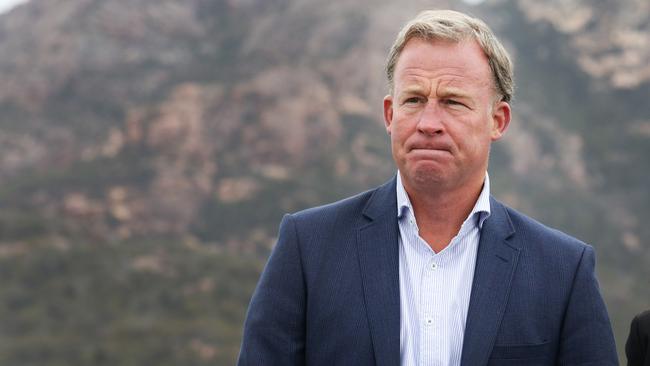
VIC News
Don't miss out on the headlines from VIC News. Followed categories will be added to My News.
Will Hodgman was born into politics. He took over the Leadership of the Tasmanian Opposition at 36, and was Tasmania’s 45th Premier at just 44.
After six years as Premier and having turned the fortunes of the state around, he resigned, exhausted, but proud.
We spoke about the nature of the political game, screening calls from the Prime Minister, Mark ‘Chopper’ Read, footy in Tasmania, the toll on the family, Obama and Trump, and what’s next.
HM: When you were young, did the Prime Minister call asking to speak to your father, and you told him he was busy?
WH: The day after a federal election when Dad had been re-elected, the phone at home was running off the hook. He’d put me on telephone answering duties and gave me simple instructions to just get a name and their number. Amongst all the calls a polite gentleman asked if he could speak with my father, but I dutifully told him, “No, Dad is too busy, but if you leave your name and number you should expect a call later”. This went on a bit as the man insisted he speak with Dad, but I stood my ground, got his details and hung up. Dad was horrified to later find his name on a scrap of paper near the phone, which I’ve still got today. It said “M Fraser” phoned with a number. It was the Prime Minister calling to offer Dad a ministry. Thank heavens I didn’t cost him his job or who knows where I’d be now. But from a young age I’d realised that politicians are just ordinary people, no different to the rest of us.
HM: You’re from a political family. Your grandfather was a state politician, your father was a Federal Member, your Uncle and father’s great uncle — all politicians. People say don’t discuss politics around the dinner table — was there anything else discussed around yours?
WH: Footy … that’s what we were all passionate about. Politics was just our way of life. I certainly saw the negative side, but also the really positive things that come from being able to help people, and improve the community and be engaged intimately in the place where you live. But we didn’t all live and breathe it. Mum made sure of that!
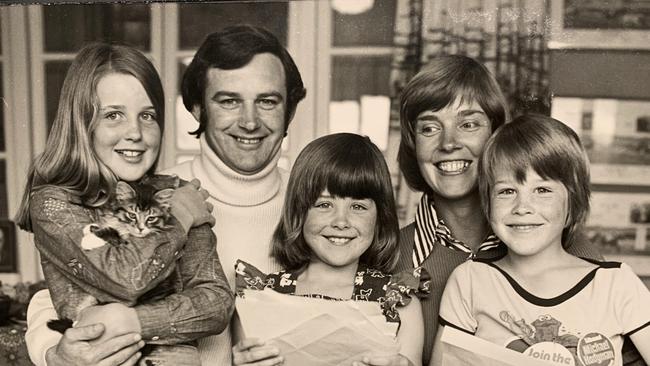
HM: You spent time as a barrister and a solicitor before politics, and waded through some pretty murky waters there.
WH: I started working in Hobart’s colourful Court of Petty Sessions and ended up in the UK, as many Australians often do, backpacking across the world. I landed a job working in child protection, prosecuting some horrible cases of family violence where kids were being terribly abused. I‘d come from a pretty sheltered upbringing in Tasmania, ignorant of the reality of what goes on in some homes. What I saw in the UK was so confronting and shocking. But it was also a huge motivation for me seeing the work governments do to support those at risk in the community, and to want to do that when I returned home to Tasmania.
HM: It’s one of the risks I guess, that the people in power making big decisions aren’t aware of the atrocities in society because haven’t had their hands dirty?
WH: Very much so, first-hand experience is crucial. Certainly, for me to see the reality of child abuse at close range was utterly shocking, but also profound in terms of my professional and personal development. I hadn’t gone to the UK to work in their child protection system. I was there as a young bloke, care free, backpacking around the world and stumbled across this job. It was life-changing.
HM: As an aside, you were junior council to your father when he was representing Mark Brandon Read. What did you learn from ‘Chopper?’
WH: I was a little nervous at meetings with our celebrity client. His arrival in Tasmania had caused quite a stir and it wasn’t long before he was needing some legal assistance. We’d often have to meet him, to get our instructions, in a local pub just near the courts, at his request, I hasten to add. Needless to say we’d agree. He’d start the meeting by shouting a round of Melbourne Bitters. It was an unusual experience, like something out of a TV show. He was a really entertaining guy to talk to, and had a view on everything. But knowing all the stories about him always kept you on edge.
HM: Were the movies representative of the man?
WH: Yes, definitely. I happened to run into Eric Bana at the footy last year, and took the chance to tell him I had acted for Chopper and that his portrayal was uncanny. Like the movies, Mark Brandon Read was always entertaining, but tinged with an unnerving edge where you thought, “Yep, this guy is capable of anything”.
HM: “Cash. There’s no cash here. Here, there’s no cash. Cash. No!” What makes a good politician?
W H: You’ve got to never forget why you’re there, and importantly, who put you there. It’s easy to lose sight of why you’re there, and to get ahead of yourself, so that constant check with your constituents, and also those closest to you, like your family, is really important. I think you’ve got to be prepared to compromise, and to consider alternate views, and to challenge your own.
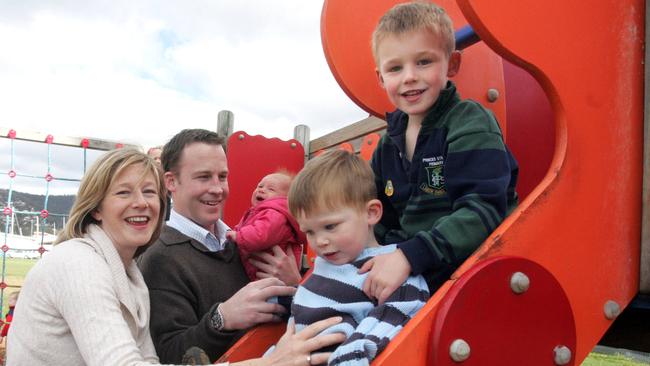
HM: How often are you making a decision for votes, versus what is right?
WH: You can’t deny that you do consider what the majority of people will feel, but that’s not to get votes, but because you’re elected to represent the views of the majority. There are, and should be, plenty of occasions where you also do something that you know won’t be universally popular.
HM: The popular view isn’t always the right view, but in politics, the populous view is the vote-getting view.
WH: It’s perhaps one of the inherent deficiencies in the system in some respects, but in my experience, good politicians ensure that the decision that is made, is the right one. You’ve got to have the strength of conviction to be unpopular.
HM: In politics, how much time is spent vote winning, versus producing the best policy? I look at the US, and it seems to be a roadshow of speeches and winning people over. I just wonder how much time is actually spent running the country and making it better.
WH: Not enough is probably the right answer. It’s easy to be distracted through the constancy of the media cycle, and the often puerile nature of politics can take your attention from far more important things. I spent way too much time fending off inquiries and criticisms about all sorts of red herrings and stuff that was so insignificant in the scheme of things, but somehow it seems is newsworthy.
HM: What’s the greatest flaw right now in our political system? If you could make a change to make the system more efficient, economic, democratic, what would it be?
WH: I am a very strong believer in the value of our political system, but the 24/7 media cycle and the “gotcha” moments diminishes it and makes politicians risk-averse. Most politicians really just want to get on with the job. On the flip side, if there’s one thing from the current crisis that is improving the system, it’s the National Cabinet. A more regular coming together of our governments, working together not only to deal with the crisis situation, but also the real work that needs to happen to improve our nation’s long term prosperity.
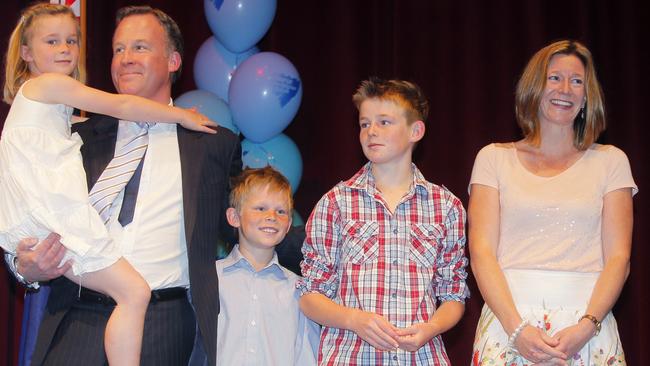
HM: You were in charge of the state’s Liberal Party at 36. That’s extraordinarily young. Can you be ready at that age?
WH: Looking back, I don’t think so. I don’t think I brought enough to the table to legitimately make the case that I was ready to be the state’s Premier. History would suggest that perhaps Tasmanians felt that too. On reflection, it was a blessing that I had eight years to earn their trust as the Leader of the Opposition. I never felt in any way impugned or hard done by, just that I had a lot more work to do, a lot more to learn, and a team to build. So we used that time, those long years in opposition, to do just that and be ready by 2014.
HM: Premier at 44 – it seems very young.
WH: At 51 it does seem very young! But by then I’d been in Parliament for 12 years and I understood how government and our parliament works. We used that time to develop a really strong policy agenda, and to build a team and be ready to govern; and we were. We had meticulously developed a “First 100 Days Plan” outlining exactly what we would do in Government from the get-go, alongside a detailed longer-term policy agenda that we’d taken to the Tasmanian people at the 2014 election. So we were able to hit the ground running and to transition from opposition into government and start delivering the turnaround of a state that went from basket case, to best in the country.
HM: I’m easily frustrated and impatient — regardless of how determined you are to make change, with so much red tape, it must feel stifling at times?
WH: It can be excruciatingly frustrating at first, though there are often good reasons for why things can’t just happen. You come to understand that there are a lot of factors in play, and a lot of perspectives to consider. There are plenty of occasions though where we are frustrated by the lack of action or the ability to get things done. It’s one of the important functions of a good politician — to find a way. Often there are also external influences that are just as exasperating — the politics of obstruction from those who aren’t even elected, a union or a particular interest group that’s opposed to your agenda can derail your plans to deliver what you’d promised, and that’s incredibly frustrating.
HM: When you’re young, you’re trying to find $20 to go to the pub and have a counter meal, which you think is quite a lot of money at the time. When you’re dealing with a $6.5 billion dollar budget, rounding errors are millions of dollars. Is it easy to lose sight of the monumental amount of money that you’re dealing with?
WH: I’m sure you can, but in our case, I had the most meticulousness of the Treasurer, now-Premier Peter Gutwein, and from day one — including when we were in opposition — we made sure our team was very conscious of Tasmania’s fiscal position.
HM: You know the numbers as well as anyone — could Tasmania support an AFL team?
WH: I think so. I’ve never felt a case was stronger, and the opportunity better, than during the time that I was Premier. The current government will now need to reset all this in the context of the coronavirus. But Tassie has made a compelling case that we can be Australia’s best performing economy and can attract high levels of investment into the state. Private investment increased by 66 per cent during our term in government so I think we could easily secure and source investment for an AFL team, internally or from outside our shores. The big test which we’ve set ourselves and is expected of us, is to make it stack up financially, ongoing. In my experience, from (AFL chief executive) Gill McLachlan down, there’s certainly a genuine interest in really testing if this is possible, and I think it is. We should just do it.
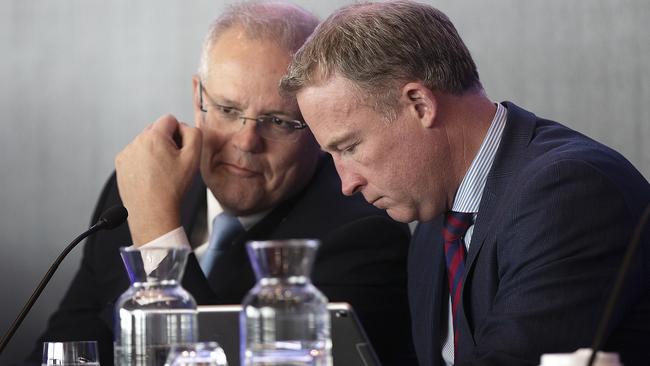
HM: Where would they be located?
WH: Hobart. I don’t see any reason why you wouldn’t continue to play games in the north of the state. A team has to have its base somewhere, and that would be logically in our capital city, to best support the infrastructure needed around the club. There’s a degree of mythology about the North v South thing, though I’ve lived it politically, so I certainly just dismiss it. But if you want to see how far Tasmania has come, just a few years ago a Hobart Hurricanes game was the best supported single sporting event in the state, and it was played in Launceston. People from the North and the North West were happy to go and cheer for the team named the Hobart Hurricanes. Not that long ago you would have laughed at the suggestion. They’d even toyed with temporarily ditching “Hobart” from the team name for games in the North. But they didn’t need to. Now Tasmanians will get behind a good Tassie team wherever it is based.
HM: Back to you and the family. How savage is a political life on you personally, and the family?
WH: More savage than I thought it would be, despite having grown up with politics surrounding our family. With the job rightly comes great responsibility, and scrutiny. But some people will use anything, whatever it takes to damage you. For my family, I was always determined to protect them from the negative sides of the job. But sadly on a few occasions the story wasn’t even about me, but what they were doing. Like most kids they are very active on social media, and that gets noticed. We started getting calls from media outlets about what my kids were allegedly doing on social media, and it was often incorrect. But they were still asking. Towards the end of my career it happened more frequently, and for Nicky and I, that was really the most disturbing and distressing part of how the job was affecting all our lives. We were petrified that our kids might innocently do something with their friends, or put something on social media that would not only be used against me politically, but could also be used against them and damage their futures. This is something that sadly I suspect current day politicians are going to have to deal with more and more.
HM: Surely there’s lines that need to be ruled, and not stepped over, by the media and opposition. Or, is it, “The gloves are off completely, bring whatever you want to the gun fight?”
WH: It shouldn’t be the case, and never should be. Even with my fiercest political rivals, I’ve always understood that families are off limits. Unless the politician is doing something that’s impeding his or her ability to do their job, their personal life and family should be off limits. That kids can be used as a political weapon is disgusting. We became so worried about their wellbeing, and their mental health, because of course they see all of what is happening on social media, and all the commentary online is often vicious. But once when it happened the strongest support I got outside of my family and my own team was from the leaders of our opposition parties who both reached out. I think they were well aware as parents themselves, about the fine line we all tread. It restored my faith in humanity.
HM: Do you think there are a number of great political candidates that are dissuaded from entering politics because of the scrutiny, and from an outsider’s view, the grey rules of engagement?
WH: Yes, and it’s a big number. Over the years I’ve approached many people to consider running for Parliament, and it’s a hard sell. While it’s a career path which has so many positives, and can be so rewarding, and is an extraordinary opportunity to make a difference, so many didn’t give it a moment’s thought. These days people are hesitant because they see the pervasiveness of social media or the nastiness of political campaigns. It’s so much easier to use social media to viciously attack or to bully people. So it is becoming increasingly difficult to get people to put their hand up.
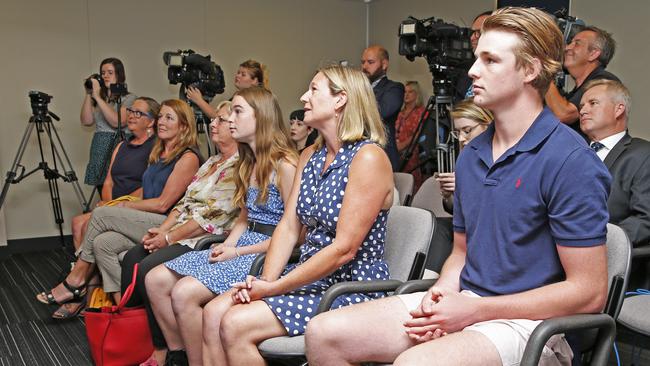
HM: I’ve always found it odd that the Prime Minister of this country gets paid less than the marketing manager of a soft drink company.
WH: It’s odd isn’t it. You don’t get into politics to make money …
HM: Is that a flaw? If you’re not attracting the best minds to run and govern the country and the states, doesn’t that need to be addressed?
WH: Entirely. It’s a terrible flaw in the system. There’s enough to be nervous about in politics, not just absence of any financial reward, but the risk to your reputation and future employment prospects once you’re out. But ultimately it would be a very brave politician who walked into the pub to test the idea of paying politicians more!
HM: Understand. Is there evidence saying we as a public vote for a charismatic candidate, or do we vote for the policy, or do we vote for a blend?
WH: I reckon it’s a mix. I was often chided for being a little too steady, too boring and a very pale imitation of my flamboyant father. But he was from another era. These days you do need to exercise judgment and be a lot more balanced in what you do and say, and I think that’s appropriate. I think most people are less swung by a flamboyant showman, but want authentic, trustworthy and dependable. We all love a character in politics, but unless they also bring a few smarts and ability to drive positive policy debate, it doesn’t help much.
HM: Who’s the best politician you’ve observed here, or abroad?
WH: I’ve observed a few. When I was living in England I saw Tony Blair, from the other side of the political fence, transform the very psyche of the country to create a sense of optimism and confidence. Obama, who I had the privilege to meet, also helped bring a country together in a very powerful and compelling way. It’s what politicians should do more of. And John Howard was the Prime Minister when I became Leader of the Opposition, many years ago. He taught me about commitment to the cause, dedication and perseverance.
HM: I look at Obama, and whenever he spoke, I wanted to listen to him. I felt there was this extraordinary empathy that he had, there was a genuine desire to help the average American. Heart was in the right spot. Charismatic. The current President …
WH: … he’s certainly a character, but you can’t compare them! They are chalk and cheese. With Trump you just think he can’t possibly keep outdoing himself, but he does. He’s a lot less predictable than the average politician.
HM: Will President Trump be voted back in?
WH: He’s a very good chance, and many pundits reckon so too. I think Biden will give it a shake though. It will be interesting.
HM: What was the best piece of advice you were ever given on the job?
WH: Dad, in jest, used to rehash the old “never complain, never explain, and never, ever resign”.
HM: You got the last bit wrong!
WH: Yeah, but at least it wasn’t with people demanding I go! Dad’s advice was really about sticking to your guns, roll with the punches, there’s going to be a lot of downside but try and remain focused on what’s important. Dad, in an entirely different context, also said to me; “Live every day like it’s your last”. I certainly always applied that to my political career. I’ve always been a keen student of politics and political history, and I was always conscious of how short the time can be to make that difference if you’re ever lucky enough to get a job like Premier. So I gave it everything, every day, and that’s why after six years it had taken a toll.
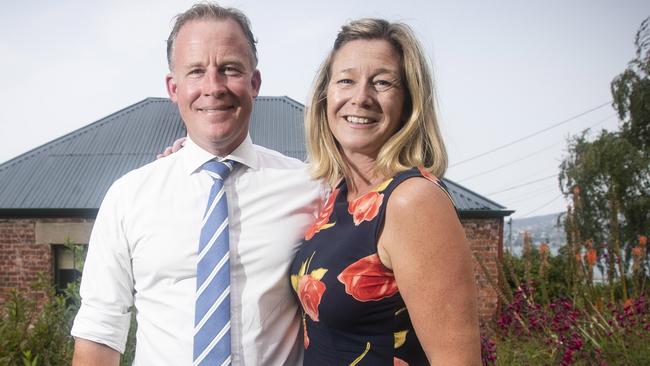
HM: What’s next?
WH: Good question. Everyone assumed that I’d stitched something up prior to my departure. In my time as Premier, and throughout it in politics, I just gave that job 100 per cent and never thought of anything else. I never, ever thought about what was next. I’ve given Tasmania my undivided attention and affection for the last 20 years, so now there might be opportunities to get interstate and do some work in the corporate sector, or no- for-profit work that I’m passionate about. It’s not the best time to be looking for work, so for now I’m enjoying more time with the family, and happy to draw breath. So while I’m not exactly sure what’s next, I’m excited about what the future holds.
HM: Congratulations on all you’ve done. You’ve dedicated your life to the community and the state, and they’re much better for it. That’s something to be unbelievably proud of.
WH: I’ve always felt especially proud to be Tasmanian, and I’m very proud of where the state is now — it’s a great thing to talk about, thanks Hame.
Originally published as How political life took a savage toll on Will Hodgman


